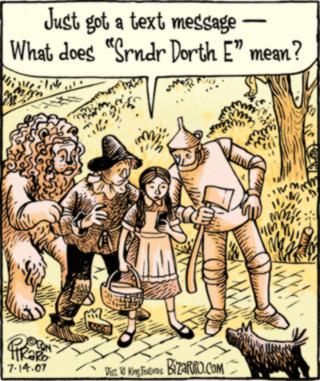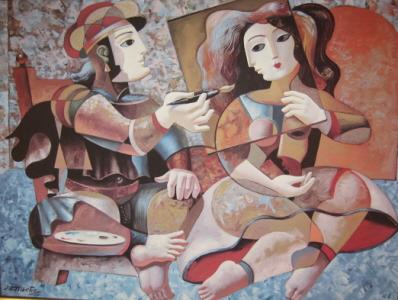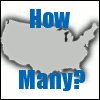Writing Process Tag
I'm doing something I hardly ever do here, a blog tour post–but it's an interesting twist on the concept. It's not a blog tour, per se, it's a tour of the same questions to the blogs of various writers.
So, when my former VCFA classmate Anindita Basu Sempere ("We Survived Tim Wynne-Jones"–our T-shirts would read, since we shared him as an advisor the same semester; Tim is an amazing teacher and mentor, and a tough one!) asked if I was game to be tagged, I said yes. Anindita is a wonderful writer–I think back to her graduate reading and have chills. I can't wait until we can all read her books. You can read her process post and see what delicious things she's working on here.
And now I will answer the questions, with apologies for caginess, because I can't say toooo much about the projects I'm actively working on at the moment (I don't want to spook them). But I do so love process talk, so here goes.
1. What am I working on?
Usually I'm only working on one thing actively, with some other things either in stages that are further along and which I might be waiting to get edits or copyedits or notes on, because I've always found it difficult to shift focus from one book to another on a daily basis. When I'm working on a book, I tend to be working on it pretty much whenever my brain has downtime, even if I'm not sitting at my keyboard. I try as best I can to hold the entire book in my mind, turning it this way and that, until new things come into view–usually for the next scene(s) or chapters, but sometimes further ahead. The ability to be IN whatever project I need to be in has always been relatively easy for me, but it has also tended to be one at a time.
But at the moment I'm attempting to work on two things at once, which is going okay so far, probably because they're at different stages. One is a collaborative middle grade fantasy novel I'm writing with my husband, which features all sorts of intricate setting details and unique characters and a chef's kid with a secret even he doesn't know. We wrote the first draft last year and are now revising and rethinking and generally embiggening and embettering it, and so that's taking the most time and attention. It's also different because this is our first collaboration, and learning how to revise together is the same kind of new endeavor that learning to write together was. But we're figuring it out and it's fun even when it's hard and we're stuck on something. We surprise each other, live the "two heads are better than one" principle for thorny plot or character or worldbuilding issues, and are constantly brainstorming and talking things out. We change our larger outline as we go, shifting as it needs to be, and discuss in depth each coming chapter, then alternate who writes, with both of us adding to the revision each day. (For the real nerds: while we wrote the first draft in Google Drive, now we're using Scrivener, with Dropbox syncing–the only hassle is just one of us can have the file open at a time; my kingdom for the functionality of Scrivener with the collab-syncing capacity of Drive).
The other project I'm working on is a YA twisted take on a fairy tale (of sorts), about which I can't say much, because it's just being born and I haven't even told my agent anything much except that yet (*waves to agent*), but also because it's a big twisty dark mystery too. I'm waiting until I have enough pages to show her. Of things I can say about it–hmm, there will be a strange city, and teens who live beneath it, rumors of magic, a glimpse of the contemporary art scene, and some thievery. Best to keep its secrets for now. Process-wise, I'm refining my outline and adding words to first few chapters when I have time. Drafting is always the hardest stage for me. I much prefer revising. But you can't do one without the other.
(I am so sorry that is SO long with so little description of the what. Annoying fact of writing life is that sometimes you can't say much.)
2. How does my work differ from others of its genre?
This one's even tougher to answer, I think. But, if pressed, I'd say the revision of the middle grade is pushing it even more into our own personal tandem weird zone, while also trying to keep it inviting. And likewise for the new solo book of mine; it's maybe a little different because while I love *some* fairy tale retellings, I'm super-picky about them. And this one is as much an inversion or subversion as a retelling. So. And it's as much realistic as fantasy. Like my book that comes out this fall, I find myself more inclined lately to treat magic in my YA stuff in a slightly less traditional fantasy way, more as a question that may or may not exist until the characters know if it does or not.
I hope it doesn't sound like I know what I'm doing. 😉 I just try to follow what feels right for the story. And then revise, rinse, repeat.
3. Why do I write what I do?
I hope because these are stories that only I can tell, that come from the idiosyncratic nature of everything I live and read and watch and listen to and am interested in and am. But also that other people can step into them too. (And for the collab, the same, but for both of us. Part of the fun of that project is trying to delight each other; the revision is mostly about doing the best we can to make sure it delights others too.) (Okay, so that probably applies to my solo stuff as well.)
4. How does your writing process work?
Routine! If I'm not getting enough done, I fall right back on my routine. Which, for me, most days, means my best hours are right after I get up. The absolute best is if I can forgo looking at the Internet–no email, no twitter–until after I have done a couple of hours of morning writing or revising. Walks during the day are spent trying to solve story in my brain, and then dog walks at night are for talking out problems with Christopher (whether it's on our collaboration or our solo stuff). I also try to write at lunch, and more in the evening if necessary. I could revise round the clock, if it wasn't a) not workable at the moment with my schedule and b) probably unhealthy. I always try to take evenings off, but when it's my writing time, I'm writing, nothing else. So long as I'm meeting my daily goals, whatever they happen to be, I cut myself some slack.
This is probably the most important thing I've learned as a writer, and I know that endless or deadline crunch round-the-clock style works for some people (just not me). But I used to spend way too much time thinking I could and should be working even more, that there was always something else I could be doing to further a project, every second. Now, I do what I intend for that day, and then I feel no guilt for anything else. If I'm getting behind on email, I don't feel guilty, so long as I'm answering urgent things and getting my writing done. Etc. I have to have hours off to watch TV or read or just be lazy or I am not going to do good work or have a life that works. I need the time away, the outside stimulus–and I have a lot of other work I have to do too. So, I try to catch up on the other stuff in between projects, or once a week (or two) for email. But my operative philosophy is: following routine = check, then guilt = no. It's made all the difference.
I could talk about outlining and things, but I've already written, ahem, a book here, so I will instead tag the next victims! Who will post next Monday on their own sites. These just happen to be two authors I think you should be paying attention to. (Theirs are the only two books I've blurbed so far, actually. I did not do blurbs while I was still reviewing for Locus–it just didn't feel right.)
– Jackie Dolamore (well, Jaclyn, to be precise and fancy). Jackie's next book is Dark Metropolis, which I thought was a wonderfully executed dark fantasy where society itself is hiding a terrible secret. Months later, I still think about the characters and the world.
– Whitney Miller. Whitney's first novel The Violet Hour is a gripping supernatural thriller with some of my favorite things: a cult, a global conspiracy, creepiness galore, and a smart heroine. I am very much looking forward to the sequel.
I can't wait to see their answers.
Writing Process Tag Read More »


